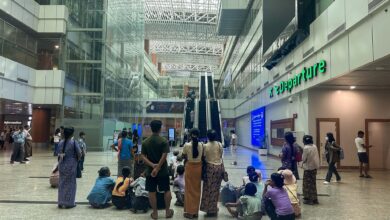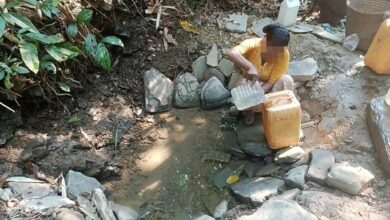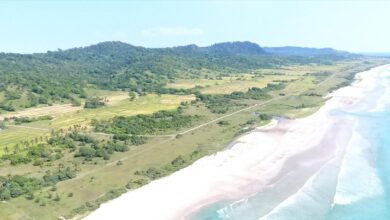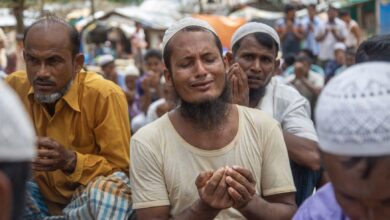
In 2012, when Aung San Suu Kyi decided to run in an election for the first time in more than 30 years, it was widely seen as an important turning point in Myanmar’s recent political history.
But there was one place that felt the impact of this decision more directly than any other. By choosing Kawhmu, a rural township in Yangon Region, as the constituency that she would contest, Suu Kyi raised it to national—even international—prominence.
“Kawhmu is basically just a big village. But it became world famous because of Amay Suu. We just couldn’t believe our luck. We were overjoyed,” recalled one resident.
But having a global political icon as its representative was more than just a boost to Kawhmu’s self-image. After decades of neglect under successive military dictatorships, the township began to see real improvements once Suu Kyi took office as a lawmaker and later as the leader of Myanmar’s now-ousted civilian government.
The biggest changes were in the area of basic infrastructure, which had long been primitive at best.
“I never imagined that we would ever have sealed roads in my village,” said another local, describing how, in the past, roads often became flooded and impassable during the rainy season.
A former MP for Kawhmu was even more effusive about the strides the township made under Suu Kyi’s leadership.
“We didn’t have decent roads or electricity for 50 or 60 years, but then we got both in a matter of five or six year. It was like a miracle!” he said.
Even though it is less than 30km from downtown Yangon, Kawhmu was like another world in terms of economic development. Almost overnight, however, new job opportunities were created that lifted many out of poverty.
“I used to make a living cutting bamboo, but later I was able to find work driving a motorcycle taxi, which paid much better,” said one man. “Life became much easier.”
Charities under siege
As MP for Kawhmu, Suu Kyi worked hard to raise the standard of living of her constituents. She did this not just as a politician, but also through her own philanthropic efforts.
Not long after assuming office in 2012, Suu Kyi established the Daw Khin Kyi Foundation in memory of her late mother. One of its first projects was the Hospitality and Catering Training Academy (HTCA) in Kawhmu, which aimed to ensure that young people there were ready to take advantage of Myanmar’s dramatic opening after decades of isolation.

Closed during the Covid-19 pandemic, the academy suffered an even worse blow after the military seized power in a coup in February 2021. Like the foundation itself, which was soon targeted by the newly installed regime, the HTCA was raided and taken over by junta forces.
“Security guards at the academy were laid off after the coup, and now the military has the run of the place,” said a woman connected to the HTCA who did not want to be identified by name. “Soldiers have destroyed and stolen many things.”
According to the woman, the now-deserted academy is littered with broken air conditioners, refrigerators and other appliances vandalised by regime troops. The La Yaung Taw agriculture and vocational training school in Naypyitaw, also run by the Daw Khin Kyi Foundation, has met a similar fate, sources there say.
But Suu Kyi’s charity was not the only one to face persecution. Kawhmu has 11 registered social welfare organisations, providing everything from healthcare to free funerals, and most have been subjected to some level of scrutiny or outright repression.
In some cases, the leaders of these charities have been treated like criminals. Nay Win, the chair of Shwe Kyaik Htaw, an organisation based in the village of Kyaik Htaw Myauk, has been arrested twice since the coup, according to locals.
The Arr Man Charity Association, based in the village of Sapagan, was raided after its founder, Thant Zin Oo, was charged with incitement under Section 505a of the Penal Code. In March, he briefly came out of hiding to visit his family, only to be shot dead by junta troops, sources told Myanmar Now.
Even groups that have kept a low profile since the coup have had trouble, with some having to deal with soldiers commandeering vehicles and other equipment, members said.
The cormorant and the coup
As in most of the rest of the country, many in Kawhmu have risen up to resist the junta’s brutal oppression.
“I have a wife and a child, but I had to leave them to join the fight against injustice. We have tolerated as much as we can. When they started killing people, we could no longer put up with it,” said one member of a local defence force.
Kawhmu’s entry into the armed struggle against military rule began in November of last year, when a local People’s Defence Force (PDF) group under the command of the shadow National Unity Government opened fire on two military vehicles, leaving two soldiers seriously injured.
That attack was followed by another in May, when PDF fighters used explosives against a junta convoy passing through the village of Nghat Aw San. Several regime troops, including officers, were killed, and hundreds of locals were subsequently arrested.
Weeks later, men on a motorcycle shot and killed Nghat Aw San’s village administrator and his wife. A group calling itself 5 Brothers Younger claimed responsibility for that attack, which resulted in a ban on motorcycles in around half of Kawhmu’s 130 villages.

There is now a heavy military presence in many parts of the township. During a recent visit, Myanmar Now encountered numerous security checkpoints and soldiers on patrol.
All of this has had a dire effect on Kawhmu’s economy. Even harvesting bamboo—a mainstay for many—is no longer available as a way to earn a living, said some locals.
“The bamboo wholesale market has been closed and the roads are blocked, so we can’t do business like before. Even the people who used to hire us to cut down bamboo are broke now,” said one villager.
One resident, citing a well-known Burmese saying, says that Kawhmu is now like a cormorant that must expend enormous effort to feed itself, unlike an egret that can do so with ease.
“We are the cormorants. We have to dive deep to catch a single fish, whereas all egrets have to do is wait downstream to eat their fill,” he said.
Noting that Kawhmu was well-positioned to prosper when Suu Kyi was still in power, he added: “If it weren’t for the coup, we could have been egrets.”
But even as their hardships deepen, many in Kawhmu remain committed to political change at all costs.
“We have to keep fighting until we win. Only after the revolution succeeds can we begin to think about ourselves again,” said one member of a local resistance group.



